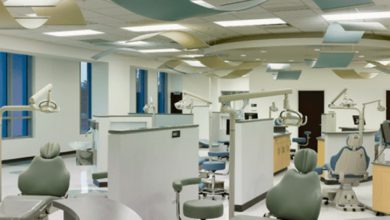Common Oral Problems: Understanding and Treating Dental Issues

Any ailment relating to the mouth, teeth, or gums is considered an oral problem. Cavities, gum disease, and jaw discomfort are all examples of this. Infections and bone loss may develop from neglected dental disorders. Preventative interventions and early detection of oral problems are crucial.
Cavities, gum disease, foul breath (halitosis), and oral cancer are the four most frequent oral health issues, as reported by the National Institute of Dental and Craniofacial Research. Maintaining a regular routine of oral hygiene at home and seeing a dentist regularly may solve most of these problems. Oral health issues are most common between the ages of 20 and 64, however, anybody may be impacted. You may click here to know the possible solutions for decayed teeth.
Most Common Oral Problems
1. Tooth Decay
Cavities develop when bacteria in the mouth digest the sugars and carbohydrates in meals. Cavities are caused when the bacteria produce acids that eat away at the tooth enamel. If you use fluoride toothpaste and brush and floss your teeth twice a day, you can avoid getting it. It’s also vital to have your teeth checked regularly so that any cavities may be caught early.
2. Periodontal (Gum) Disease
Abscessed teeth are caused by an infection of the gums and other tissues that keep teeth in place in the mouth. Plaque and tartar buildup is the root cause of this condition, which manifests itself clinically as gum inflammation, redness, and sometimes bleeding. Leaving it untreated might result in tooth loss. A healthy diet, twice-yearly dental checkups, and diligent tooth-cleaning habits may all stave against gum disease.
3. Other Common Oral Problems
In addition to these problems, people often have jaw discomfort, receding gums, abscesses, and chipped or fractured teeth. These may result from neglecting dental care or experiencing mouth trauma. Many people have one or more of the following oral health issues:
Bad Breath: Embarrassing bad breath may be caused by a variety of factors, including bacteria in the mouth, specific meals, and medical disorders. Bad breath may be mitigated by maintaining regular brushing, flossing, and scraping of the tongue.
Sensitive Teeth: This develops when acid erosion and gum recession cause tooth enamel to thin. Some of the things that might contribute to this issue include eating acidic meals and brushing too hard.
Teeth Grinding (Bruxism): Causes include anxiety, a misaligned bite, or tooth loss. It is possible to lessen teeth-grinding by wearing a night guard while you sleep. Yoga, deep breathing, and meditation are just few stress-busting relaxation strategies.
Temporomandibular Joint Disorders (TMJ): In this condition, the patient has discomfort in the jaw, clicking in the jaw, and trouble opening and shutting the mouth. The alignment of the teeth, arthritis, or stress may all contribute to this problem. Surgery, physiotherapy, medication, or a night guard may be part of the treatment plan.
Dental Abscesses: That’s an infection of the gums or the bone around the tooth’s root. As the infection worsens, it may discharge pus and produce excruciating agony. Abscess drainage, antibiotics, and root canals are all possible treatments.
Tooth Erosion: This is the result of acid erosion of tooth enamel brought on by certain foods and beverages. Erosion may be slowed by eating a balanced diet and avoiding acidic foods.
In Conclusion
Maintaining excellent dental health requires an awareness of typical oral issues. It is possible to lessen the likelihood of developing dental issues by following preventative measures including brushing and flossing regularly, maintaining a healthy diet, and scheduling twice-yearly dental checkups. The first hint of any problem with your teeth or gums necessitates an emergency trip to the dentist.





